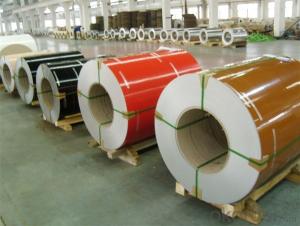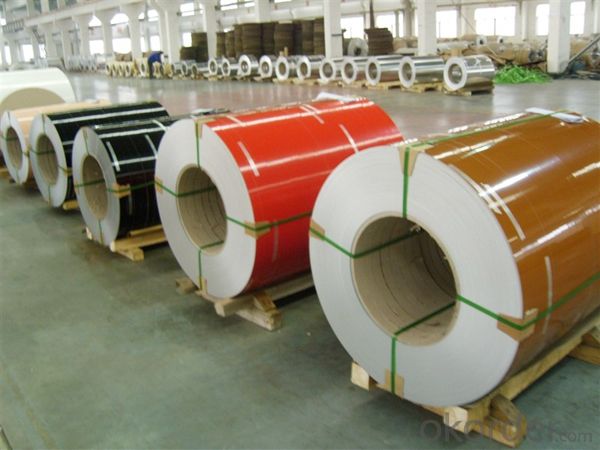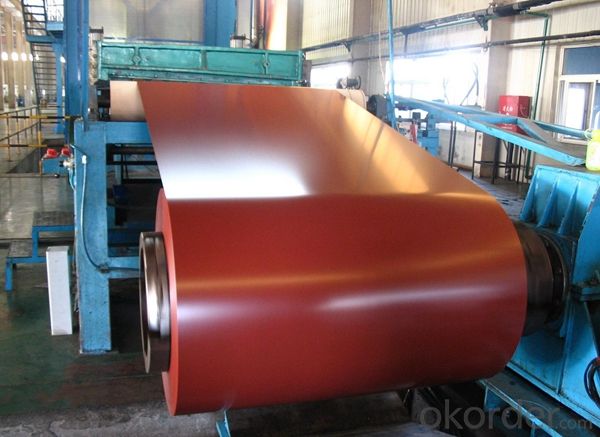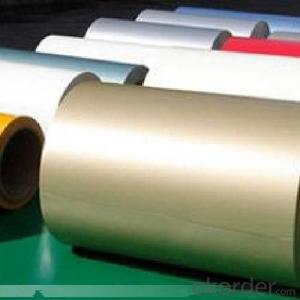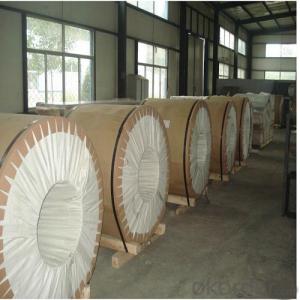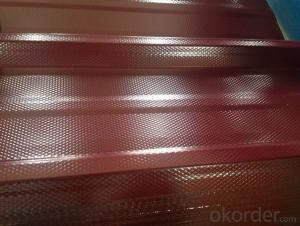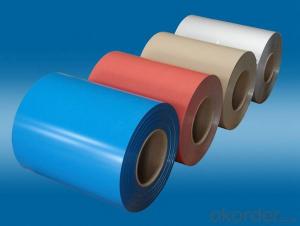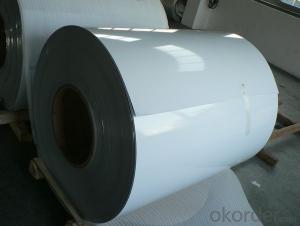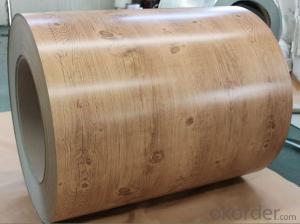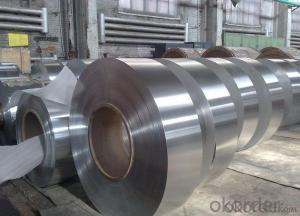Coil Coated Aluminum Plate for Metal Wall System
- Loading Port:
- Shanghai
- Payment Terms:
- TT OR LC
- Min Order Qty:
- 5 m.t.
- Supply Capability:
- 10000 m.t./month
OKorder Service Pledge
OKorder Financial Service
You Might Also Like
Specification
1. Specification of Color Coated Aluminum Coil for Metal Wall System
characteristics | Application |
1) Super peeling strength | 1) Building exterior curtain walls |
2) Excellent surface flatness and smoothness | 2) Decoration and renovation additions for old buildings |
3) Superior weather, corrosion, pollutant resistance | 3) Decoration of interior walls, ceilings, bathrooms, kitchens and balconies |
4) Even coating, various colors | 4) Shop door decorations |
5) Fireproof, excellent heat and sound insulation | 5) Advertisement board display platforms and signboards |
6) Superior impact resistance | 6) Wallboards and ceilings for tunnels |
7) Lightweight and easy to process | 7) Industrial materials, materials for vehicles and boats |
2. Application of Color Coated Aluminum Coil for Metal Wall System
(1).Interior: wall cladding, ceilings, bathrooms, kitchens and balconies, shutters, doors...
(2).Exterior: wall cladding, facades, roofing, canopies, tunnels,column covers , renovations...
(3).Advertisement: display platforms, signboards, fascia, shop fronts...
3. Feature of Color Coated Aluminum Coil for Metal Wall System
*Such coil is specially designed to replace aluminum ingot, due to the high export tax of aluminum ingot, the coil has better price than ingot.
*This type of coil can fit customer's remelting furnace just like ingot, no need to make any change to the production line that was previously used for ingot. The standard coil size and weight is very suitable for the feed gate of furnace.
*This type of coil causes less material wastage than ingot when remelted.
*Our coil is made directly from ore, no need to go though the ingot making process, quality is much better than other suppliers who use ingot scrap to make coil.
Be free from Oil Stain, Dent, Inclusion, Scratches, Stain, Oxide Dicoloration, Breaks, Corrosion, Roll Marks, Dirt Streaks and other defect which will interfere with use
4. Certificate:
SGS and ROHS(if client request, paid by client), MTC(plant provided), Certificate of Origin(FORM A, FORM E, CO), Bureau Veritas and SGS (if client request, paid by client), CIQS certificate
5. Image of Color Coated Aluminum Coil for Metal Wall System
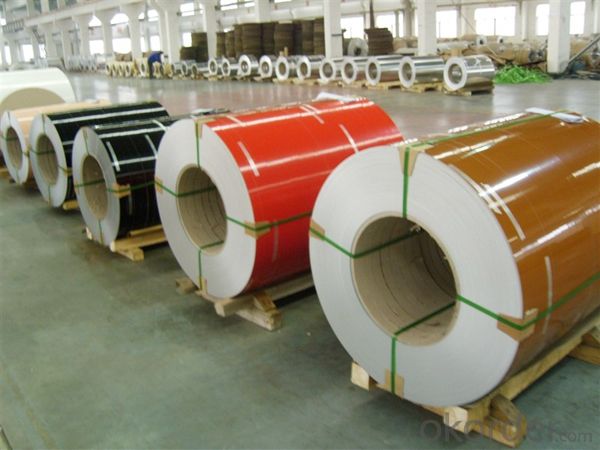
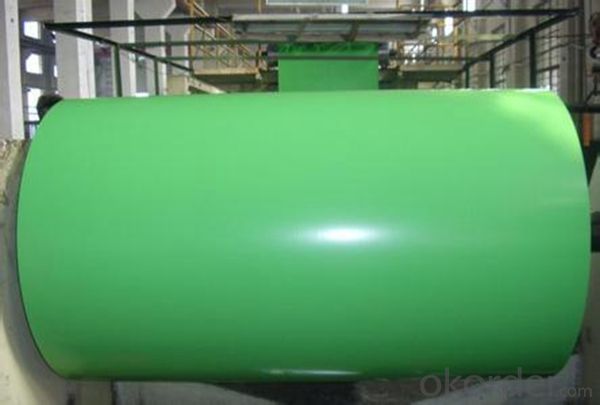
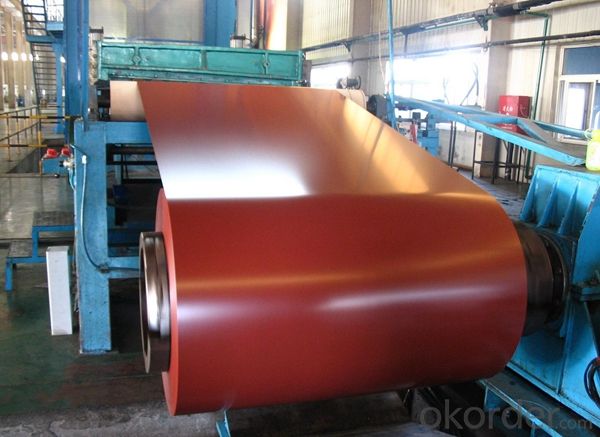
6. Package and shipping of Color Coated Aluminum Coil for Metal Wall System
eye to wall
eye to the wall
with wood pallet (wooded case also available)
7. FAQ
1) What is the delivery time?
Dpends on actual order, around 20 to 35 days
2)What is the QC system:
We have QC staff of 20 persons and advanced equipment, each production is with MTC traced from Aluminum ingot lot.
3) What market do you mainly sell to?
Australia, America, Asia, Middle East, Western Europe, Africa etc
- Q: Are there any limitations or restrictions on the use of aluminum coils?
- Aluminum coils come with limitations and restrictions that need to be taken into account. Some of the key limitations are as follows: 1. Corrosion: Aluminum is prone to corrosion, especially when exposed to certain chemicals or environments. This means it may not be suitable for applications where it will encounter corrosive substances or highly corrosive environments. 2. Strength: Although aluminum is lightweight, it lacks the strength of metals like steel. This limits its use in applications requiring high strength or load-bearing capabilities. 3. Temperature sensitivity: Aluminum has a lower melting point compared to other metals, which can be a drawback in applications involving high temperatures. It may not be suitable for certain industrial or high-temperature environments. 4. Electrical conductivity: While aluminum has good electrical conductivity, it falls short of copper's conductivity. This can limit its use in applications requiring high electrical conductivity, such as electrical wiring or power transmission. 5. Cost: Aluminum can be more expensive than other metals, making it less favorable in cost-sensitive applications. In such cases, alternative materials may be preferred. 6. Formability: Compared to some other metals, shaping or forming aluminum coils can be challenging. This restricts their use in applications that demand complex shapes or tight tolerances. When selecting aluminum coils for a specific purpose, it is crucial to consider these limitations and restrictions. A careful evaluation of the particular requirements and constraints will help determine whether aluminum coils are suitable or if alternative materials should be considered.
- Q: What are the different coil handling options available for aluminum coils?
- Some of the different coil handling options available for aluminum coils include coil lifters, coil tongs, coil hooks, coil cradles, coil upenders, and coil cars. These options allow for safe and efficient handling of aluminum coils during transportation, storage, and processing.
- Q: How much does it cost to extract aluminium from its raw ore? Also how much does extracted aluminium sell for? I cannot find this anywhere on the internet. I would really appreciate some help.
- The biggest cost is the electricity. This is why most Al smelters are located where electricity is cheap. The price of Al metal depends on exactly what form it is in and what the alloy is. Scrap Al is worth very roughly $0.30 per pound. Fabricated Al alloys for aerospace applications sell for much much more. Ultra high purity Al for semiconductors sells for roughly $40 per kg.
- Q: Can aluminum coils be used in architectural applications?
- Yes, aluminum coils can be used in architectural applications. Aluminum is a versatile material that offers excellent durability, corrosion resistance, and a lightweight nature, making it suitable for various architectural uses. It is commonly used in roofing, cladding, facades, windows, and other decorative elements in buildings.
- Q: What are the different elongation values of aluminum coils?
- The elongation values of aluminum coils can vary based on the specific alloy and temper of the aluminum. Generally, aluminum coils possess exceptional elongation characteristics, enabling them to undergo stretching or deformation without breaking. To illustrate, the frequently utilized alloy 3003-H14 typically exhibits an elongation value of approximately 20-30%. This implies that the aluminum coil can stretch up to 20-30% of its original length before reaching the point of fracture. Conversely, high-strength alloys such as 7075-T6 possess lower elongation values, typically ranging from 9-13%. These alloys are specifically designed for applications where strength is of utmost importance, albeit at the expense of sacrificing some elongation properties. It is worth noting that elongation values can also be influenced by the processing and treatment methods employed on the aluminum coils. For instance, annealing or heat treatment can enhance the elongation properties of specific alloys. In conclusion, the elongation values of aluminum coils can span from 9% to 30%, depending on the alloy, temper, and processing methods utilized.
- Q: Are aluminum coils available in different colors?
- Aluminum coils come in various colors, offering a plethora of design and aesthetic possibilities for different applications. To achieve these colors, the surface of the aluminum coils is coated with a long-lasting finish, which can be found in different hues. This coating process, known as coil coating, involves thoroughly cleaning and pre-treating the aluminum coils before applying a layer of paint or other colored material. Consequently, a wide array of colors can be applied to the aluminum coils, allowing for flexibility in design and aesthetic preferences.
- Q: Can aluminum coils be used in the manufacturing of beverage cans?
- Indeed, beverage cans can be manufactured using aluminum coils. The utilization of aluminum in beverage can production is widespread owing to its multitude of benefits. Typically, aluminum coils are rolled into slender sheets, subsequently sliced, molded, and coated to achieve the final can structure. These coils offer a lightweight, sturdy, and resistant-to-corrosion material that is suitable for the storage and preservation of beverages. Moreover, aluminum is highly recyclable, rendering it an environmentally conscious option for the production of beverage cans.
- Q: How are aluminum coils used in the production of power transmission lines?
- Aluminum coils are used extensively in the production of power transmission lines due to their unique properties and benefits. These coils are typically made from high-quality aluminum alloys that offer excellent conductivity, strength, and corrosion resistance. One key application of aluminum coils in power transmission lines is in the manufacturing of overhead conductors. These conductors are used to transmit electrical energy from power plants to substations and distribution networks. Aluminum coils are used to create the conductive core of these overhead conductors, as aluminum has a much lower resistance compared to other metals like copper. This low resistance allows for efficient transmission of electricity over long distances, minimizing energy loss and improving overall system performance. Moreover, aluminum coils are lightweight compared to copper coils, making them easier to handle and install. This characteristic significantly reduces the costs associated with transportation, installation, and maintenance of power transmission lines. As a result, aluminum coils have become the preferred choice for overhead conductors in power transmission systems worldwide. Furthermore, the corrosion resistance of aluminum coils ensures long-term durability and reliability of power transmission lines. Aluminum naturally develops a protective oxide layer that prevents further corrosion, even in harsh environmental conditions. This corrosion resistance extends the lifespan of the transmission lines, reducing the need for frequent repairs or replacements. In summary, aluminum coils play a crucial role in the production of power transmission lines. They enable efficient electricity transmission over long distances, reduce costs associated with installation and maintenance, and provide long-lasting corrosion resistance. With these advantages, aluminum coils have become a widely adopted solution in the power industry to enhance the performance and reliability of power transmission systems.
- Q: What is the melting point of aluminum coils?
- The melting point of aluminum coils is approximately 660 degrees Celsius or 1220 degrees Fahrenheit.
- Q: What are some common defects in aluminum coils?
- Aluminum coils may have several common defects, which are as follows: 1. Surface imperfections: Scratches, pits, dents, or waviness can be observed on the coil's surface. These defects may arise during manufacturing or due to mishandling during transportation or storage. 2. Edge irregularities: Coil edges might exhibit burrs or unevenness. Improper slitting or cutting processes can lead to such defects. 3. Coating abnormalities: When an aluminum coil is coated with a protective or decorative layer, issues like peeling, cracking, or uneven coating thickness may occur. These problems can be attributed to incorrect application or inadequate curing of the coating. 4. Corrosion: Although aluminum is generally resistant to corrosion, it can still be susceptible to corrosion in specific environments. Corrosion can manifest as pitting, staining, or the presence of white powdery deposits on the coil's surface. 5. Alloy flaws: In certain instances, the aluminum alloy used in the coil might contain defects such as inclusions, impurities, or an improper composition. These flaws can have an adverse impact on the coil's mechanical properties and overall performance. 6. Shape irregularities: Aluminum coils are expected to possess a consistent and uniform shape. However, defects such as coil set (where the coil retains a curvature after unwinding) or camber (where the coil exhibits a slight curvature across its width) can occur. These defects are usually caused by incorrect tension or cooling during the manufacturing process. 7. Welding defects: If the aluminum coil is produced by welding multiple sheets or strips of aluminum together, defects in the welds can occur. These defects include incomplete welds, cracks, or porosity, which can weaken the coil and compromise its structural integrity.
Send your message to us
Coil Coated Aluminum Plate for Metal Wall System
- Loading Port:
- Shanghai
- Payment Terms:
- TT OR LC
- Min Order Qty:
- 5 m.t.
- Supply Capability:
- 10000 m.t./month
OKorder Service Pledge
OKorder Financial Service
Similar products
Hot products
Hot Searches
Related keywords
